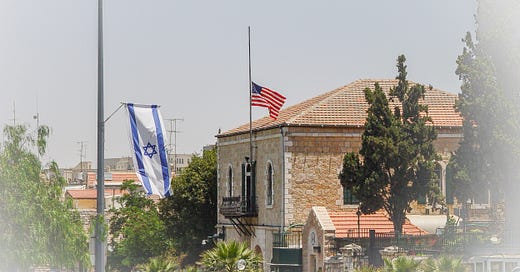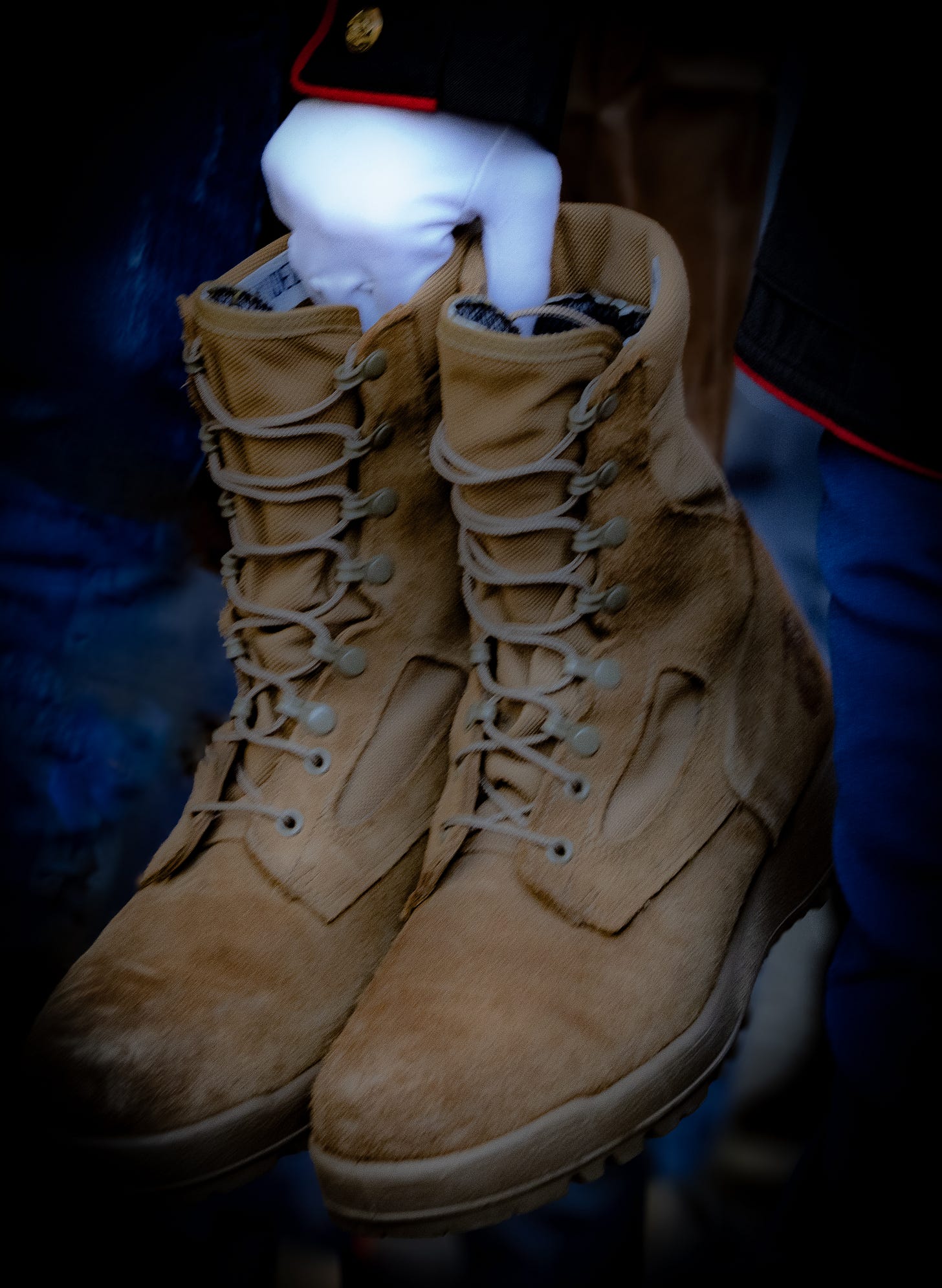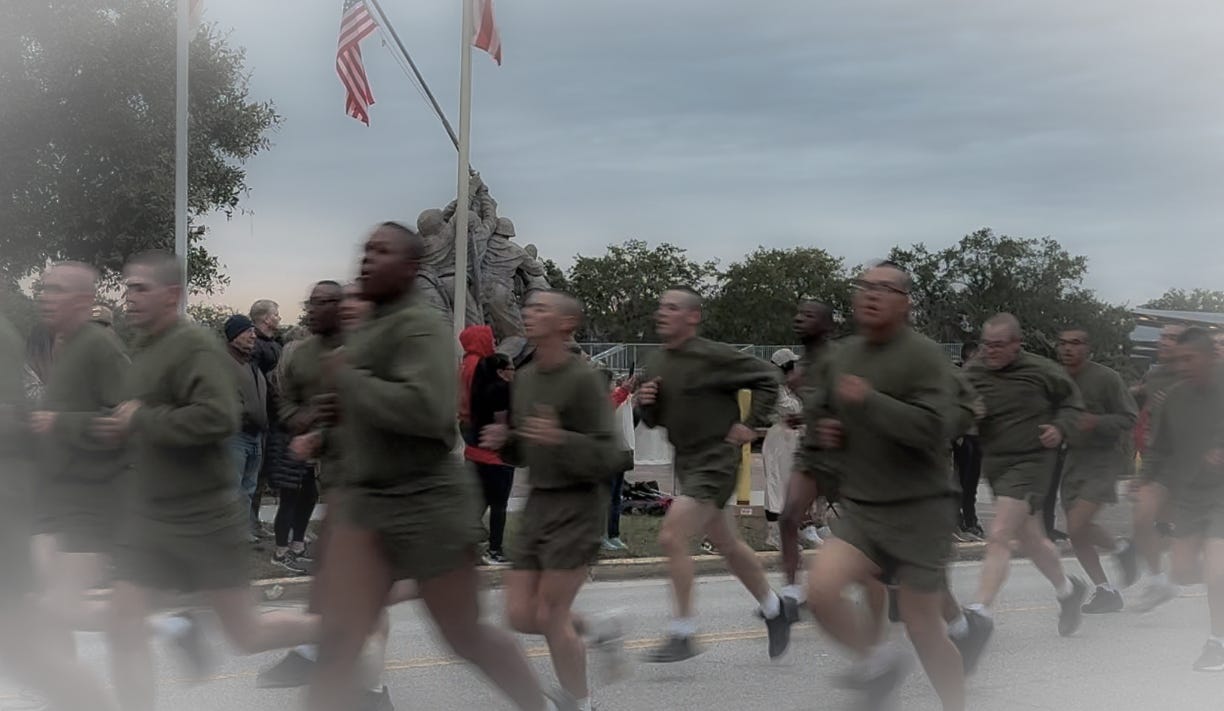The Price of Liberty is Eternal Vigilance
A telling incident from Tel Aviv, the day Ronald Reagan died, June 5, 2004.
Above, the US embassy, Tel Aviv, Israel. It was coincidental that I was in that city on the day the news flashed around the world, that the 40th president of the United States had passed away, aged 93. I had no need of the embassy’s services. Being nearby and seeing the flag at half mast was pure coincidence. But the brief, explosive moment that followed, left its indelible mark.
Walking through the city of Tel Aviv, I had my camera gear in a backpack. As I heard the news of Ronald Reagan’s passing, and noticed the half mast flag, I decided to take a photo just for the sake of posterity. I would always be able to answer, and show, to my posterity if no one else, where I was in the world when I heard the news.
I suppose the decision to mark that occasion, at least in my own photographic files, harks back to something that stuck in my memory from decades earlier. I can easily remember where I was on the day John F. Kennedy was assassinated. It was November 1963. I was just nine years old, living in government housing in the northern suburbs of Melbourne, selling newspapers on a street corner. It was Saturday afternoon. The assassination happened on Friday, November 22, in Dallas, Texas. In Australia though, the time zone difference meant it was Saturday, the 23rd.
In this day and age, a nine year old selling papers or selling anything on a busy traffic street corner would seem unusual, perhaps even radical, and my parents might be scolded for their negligence. However, in 1963, the idea that there was something wrong with my regular presence on that street corner did not occur to anyone. As an eight and nine year old, I frequently ran, in the dark, regardless of weather, on a Tuesday night to the CEBS (Church of England Boys Society) activity night, a mile from our home. If anything were to be suggested, it would be in connection with the enthusiasm and enterprise of a young boy, not the absence of his parents. My, how the world has changed.
On that Saturday afternoon, I had no idea about the news I was selling. I just handed over the newspapers and took the money (sometimes with a tip) from the bus drivers and motorists who pulled up at the street lights on that corner — the corner of Southern Road and Oriel Road, West Heidelberg.
That day I had my record sales day. Papers flew out of my hands. I ran out of my allotted stack early, and fetched a big second batch from the newspaper shop.
I didn’t realize until later, after I got home, all abuzz because of my stellar sales, that something so momentous had happened. Who knows what the trajectory of the USA might have been if JFK had completed his first term in office, and then a second term?
Now, back to Ronald Reagan. Though there was an assassination attempt on him, it was unsuccessful, and he lived to a full age. So it was just a matter of passing interest that on the day of his death, the half-mast flag caught my attention. I diverted from the direction I had been headed and sat down in a quiet parkland with a clear view of the embassy more than 100 yards away. I had a good telephoto lens so the distance was not a problem. Little did I know that my action of pointing a camera in the direction of the embassy would stir up a hornet’s nest. Immediately, a swarm of armed embassy personnel dressed SWAT-style, stormed out of the complex, running towards me. They were watching. They saw everything, including me, an innocuous Aussie with a camera.
Of course, Israel is always on high alert, so on reflection the agents’ immediate action was no surprise. Fortunately, they took my word that I was on a simple nostalgia mission. My camera wasn’t confiscated. My person wasn’t violated. My freedom wasn’t compromised. They stood down, and headed back to their posts.
However, the watchfulness of the embassy personnel has remained as a useful reminder to me of greater matters. Something so precious and potentially ephemeral as a democracy — Liberté, Égalité, Fraternité — liberty, equality, fraternity — needs constant attention, to ward off enemies within and without.
In fact, Ronald Reagan himself said, “Freedom is a fragile thing and it's never more than one generation away from extinction. It is not ours by way of inheritance; it must be fought for and defended constantly by each generation, for it comes only once to a people. And those in world history who have known freedom and then lost it have never known it again.”1
Thomas Jefferson is often attributed the phrase, “The price of liberty is eternal vigilance,” or its variation, “Eternal vigilance is the price of liberty.”2 In fact, it wasn’t used by him, but was used by many before and after him. Regardless of who said it first, or any time, the principal is true.
My photograph of the half mast flag in memory of Ronald Reagan on that June 2004 day in Tel Aviv, a simple matter then, still serves to remind me what it takes to preserve freedom and the societal values that underpin that freedom. It takes vigilant watching and swift action, in the embassies, in the air, through all political discourse, on the borders, in all levels and types of education, and on the street. A vigilant nation’s watchful, thoughtful populace, needs to — sleep with their boots on — always on the ready. §

Spoken at his inauguration as California’s governor, January 5, 1967 — https://www.reaganlibrary.gov/archives/speech/january-5-1967-inaugural-address-public-ceremony
Jefferson’s biographers at Monticello made these observations: “We currently have no evidence to confirm that Thomas Jefferson ever said or wrote, "Eternal vigilance is the price of liberty" or any of its variants. This quotation was well-known in the nineteenth century, and was in fact used by a number of famous figures, including Frederick Douglass, James Buchanan, William Henry Harrison, and Ida B. Wells. It can be traced back, ultimately, to John Philpot Curran's statement, "The condition upon which God hath given liberty to man is eternal vigilance; which condition if he break, servitude is at once the consequence of his crime and the punishment of his guilt." Curran was still being directly quoted (more or less accurately) and credited with the quote in American newspapers in the early nineteenth century, but before long the quote was being used without Curran's name, and was being shortened to its more well-known modern form.







